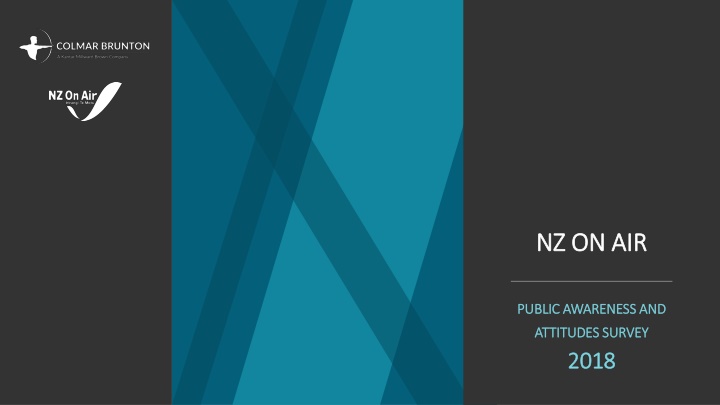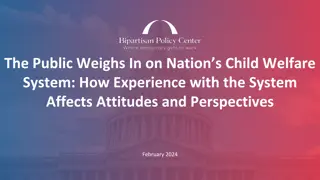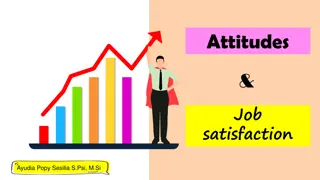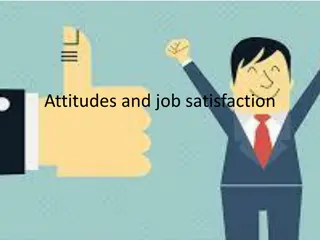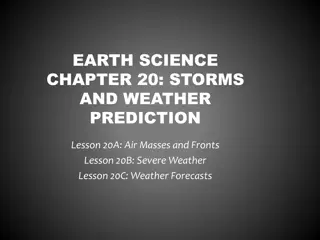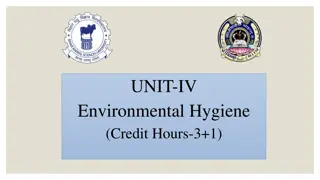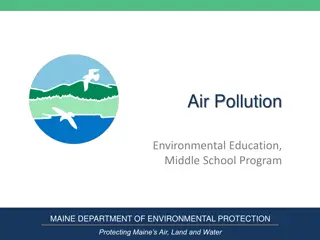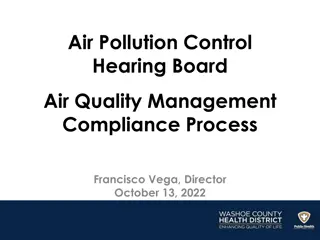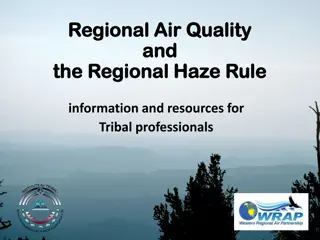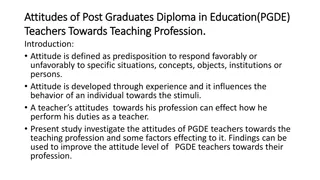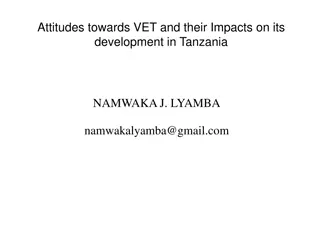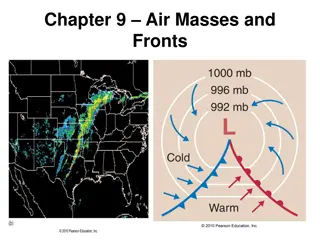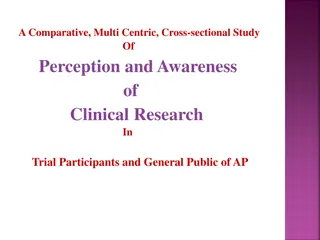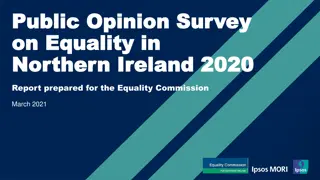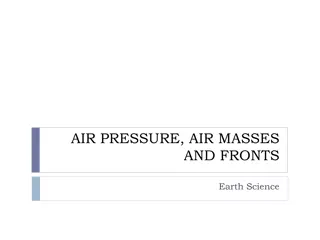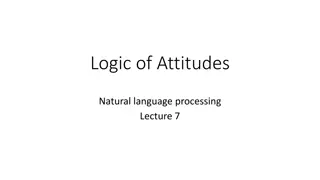NZ On Air Public Awareness and Attitudes Survey 2018
The NZ On Air Public Awareness and Attitudes Survey 2018 conducted telephone and online interviews to gauge New Zealanders' perceptions of NZ On Air and its role in funding local content. The findings show increased awareness and positive attitudes towards the diversity of content provided by NZ On Air.
Download Presentation

Please find below an Image/Link to download the presentation.
The content on the website is provided AS IS for your information and personal use only. It may not be sold, licensed, or shared on other websites without obtaining consent from the author.If you encounter any issues during the download, it is possible that the publisher has removed the file from their server.
You are allowed to download the files provided on this website for personal or commercial use, subject to the condition that they are used lawfully. All files are the property of their respective owners.
The content on the website is provided AS IS for your information and personal use only. It may not be sold, licensed, or shared on other websites without obtaining consent from the author.
E N D
Presentation Transcript
NZ ON AIR NZ ON AIR PUBLIC AWARENESS AND PUBLIC AWARENESS AND ATTITUDES SURVEY ATTITUDES SURVEY 2018 2018
Objectives and Methodology 500 + 108 TELEPHONE INTERVIEWS FIELDWORK DATES: 3 APRIL - 6 MAY 2018 ONLINE INTERVIEWS 8 minutes OBJECTIVES METHODOLOGY A mixed method approach was undertaken, with 500 interviews being conducted by telephone, and 108 completed online to ensure that those without a landline were also included in the research. Random Digital Dialling was used to obtain landline telephone numbers. A random adult in the household was selected by asking to speak with the person with the next birthday. The Colmar Brunton online consumer panel was used to source New Zealanders without a landline. Interviewers used Computer Assisted Telephone Interviewing (CATI) to assist with question routing and data entry. Those who completed the survey online were sent a link to the questionnaire via email. The sample was structured and weighted to be representative of the New Zealand adult population as a whole (using 2013 Census data). Whenever differences are reported (for example an increase or decrease since last year, or previous years) these are statistically significant at the 95% confidence level or greater unless otherwise stated. NZ On Air commissioned Colmar Brunton to research and track New Zealanders understanding of: NZ On Air, NZ On Air s role in funding local content, and their views on that content. Colmar Brunton 2018 | SLIDE 2
Executive Summary The majority of New Zealanders agree NZ On Air provides a diversity of content that would otherwise not exist, and they value this diversity. These findings are consistent with 2017. Results in Results in diversity diversity 2018 68% 2017 70% 92% Values Values diversity diversity 2018 73% 2017 72% Consistent with previous years, most New Zealanders feel that it is important to have free-to-air, publicly funded television content. Awareness of NZ On Air has increased over the last two years; 92% of New Zealanders are aware of NZ On Air compared to 89% in 2017 and 83% in 2016. 85% 84% 2018 2017 Colmar Brunton 2018 | SLIDE3
HIGH LEVEL AWARENESS AND PERCEPTIONS
The vast majority of New Zealanders are aware of NZ On Air (92%). Awareness has continued to recover following a decline in 2016. The difference between 2018 and 2016 is statistically significant. Q: Do you know that there is an organisation called NZ On Air? 100% 95% 94% 93% 93% 92% 92% 91% 91% 80% 89% 88% 83% 77% 60% 40% 20% Aware of NZ On Air 0% 1992 1997 2002 2007 2011 2012 2013 2014 2015 2016 2017 2018 Total population awareness 2018 92% 0% 10% 20% 30% 40% 50% 60% 70% 80% 90% 100% 75% 88% *Asian New Zealanders *Aged 15-29 95% 99% *NZ M ori Aged 50+ NZ European Base: All New Zealanders aged 15 and over, 2018 (n=608). Notes: * differences not statistically significant at the 95% level. significantly higher than 2016. Source: A1. Colmar Brunton 2018 | SLIDE5
More than eight in ten New Zealanders think its important to have publicly funded television content that is free to view. Older people (aged 50+) are more likely to feel it is important (92% ), while younger people aged 15-29 are least likely to place importance on it, although most (78%) still do. Q: How important is it that publicly funded television content is free to view meaning you don t have to pay a SKY, Netflix or other subscription? 100% 85% 85% 84% 84% 83% 80% 60% 40% NETT IMPORTANT (% 4-5 out of 5) 20% 0% 2014 2015 2016 2017 2018 Total population agreement 2018 85% 0% 10% 20% 30% 40% 50% 60% 70% 80% 90% 100% 92% 78% 93% *NZ M ori Aged 50+ *Aged 15-29 Base: All New Zealanders aged 15 and over, 2018 (n=608), 2017 (n=601), 2016 (n=606), 2015 (n=600), 2014 (n=500). Note: * differences not statistically significant at the 95% level. Source: B1b. Colmar Brunton 2018 | SLIDE6
The majority of New Zealanders feel that NZ On Air provides a diversity of content that would otherwise not exist (68%). Those aged 40+ are more likely (49%) to strongly agree strongly agree the funding results in greater diversity than average (41%). Q: How much do you agree or disagree that NZ On Air funding results in a greater diversity of local content than would otherwise exist? 5 Strongly agree 4 3 2 1 Strongly disagree Don't know 2018 41% 28% 21% 3% 1 7% 2017 41% 29% 22% 3% 1 5% Total population NETT agreement (4-5) 2018 68% 0% 10% 20% 30% 40% 50% 60% 70% 80% 90% 100% 2018 76% Aged 30-49 58% *Aged 15-29 *Asian New Zealanders Base: All New Zealanders aged 15 and over, 2018 (n=608). Note: * differences not statistically significant at the 95% level. Source: B5. Colmar Brunton 2018 | SLIDE7
Almost three-quarters of New Zealanders value the diversity of local content NZ On Air funds (73%). There is indicative evidence that feelings have intensified since 2017; 45% strongly agree compared to 38% in 2017, although the difference is not statistically significant. Q: How much do you agree or disagree with the following statement you value the diversity of local content funded by NZ on Air? 5 Strongly agree 4 3 2 1 Strongly disagree Don't know 2018 45% 28% 19% 3% 1 4% 2017 38% 34% 19% 3% 2 4% Total population NETT agreement (4-5) 2018 73% 0% 10% 20% 30% 40% 50% 60% 70% 80% 90% 100% 67% 75% NZ *M ori 68% European 79% *Aged 15-29 *Aged 30-49 69% *Asian New Zealanders Base: All New Zealanders aged 15 and over, 2018 (n=608). Notes: * differences not statistically significant at the 95% level. Source: B7. Colmar Brunton 2018 | SLIDE8
DETAILED AWARENESS FINDINGS
When it comes to top-of-mind awareness of what NZ On Air does, around a third of those aware of NZ On Air know of your funding role, and one in four think you are a broadcaster. Q: Can you please tell me everything you know about what NZ On Air does? (Open ended question) Funds NZ made programmes / content on TV 18% Funds the production of NZ made programmes / content 10% NETT: Funding 35% Funds NZ movies / films 8% Funds NZ made programmes / content on radio 7% Funds NZ musicians / artists 6% Broadcasts TV 12% NETT: Broadcasting 24% Broadcasts TV and radio 9% Broadcasting company / authority 4% Radio / radio station / governs radio 11% Often see NZ on Air / NZ on Air logo 8% Provide content for NZ programmes / local programming 7% Produces / creates programmes / local programmes 6% Regulates / monitors content that is broadcast 5% Receives / deals with TV complaints 5% Government funded / run 4% Promotes / supports NZ made programmes / content 4% Brings us information / up to date information / news 3% Other 8% Dont know 16% Base: All New Zealanders who are aware of NZ On Air, 2018 (n=566). Source: A2. Colmar Brunton 2018 | SLIDE10
Awareness of NZ On Airs support for community broadcasting, music, and digital media appears to be trending upwards, although the increases are not statistically significant. Q: Do you think NZ On Air supports the following? 100% 92% 95% 92% 90% 89% Television 90% 82% 77% 76% 76% 80% 72% Radio 68% 70% 65% 70% 60% 64% 63% 61% 61% Community broadcasting 50% 40% 33% 31% 30% 30% Music 27% 30% 20% Digital media 10% % YES 0% 2014 2015 2016 2017 2018 Base: All New Zealanders who are aware of NZ On Air, 2018 (n=566), 2017 (n=553), 2016 (n=540), 2015 (n=553), 2014 (n=458). Source: A3. Colmar Brunton 2018 | SLIDE11
Awareness of NZ On Airs funding role has seen a slight, although not statistically significant, decline since last year, while awareness of their role in promoting appears to be trending upwards. There also appears to have been an upwards shift in perceptions that NZ On Air supports local content through broadcasting and producing, suggesting there continues to be some confusion as to NZOA s role. Q: In what way do you think NZ On Air supports local content? By 100% 90% 83% 85% 81% Broadcasting 82% 80% 80% 79% 80% 81% 69% 73% 78% 68% 77% 66% 71% 70% Funding 68% 67% 60% 64% 63% 62% Promoting 50% 40% Producing 30% 20% 10% % YES 0% 2014 2015 2016 2017 2018 Base: Those who know of at least one type of media NZ On Air supports, 2018 (n=552), 2017 (n=542), 2016 (n=531), 2015 (n=540), 2014 (n=450). Source: A4. Colmar Brunton 2018 | SLIDE12
SUPPORT FOR NZ ON AIR S MISSION
Between two-thirds and three-quarters of New Zealanders feel that NZ On Air supported content is important. There is evidence that the public are less convinced that NZ On Air supports local content (either in general or on radio) than was the case in 2017, although the differences are not statistically significant. Q: To what extent do you agree with each of the following statements? 100% 90% 79% 76% 80% NZ On Air supports local content that is important to New Zealanders 73% 75% 75% 78% 74% 70% 70% 70% 68% 68% 66% 60% NZ On Air supports television programmes and activities that are important to New Zealanders 50% 40% NZ On Air supports local content for radio that is important to New Zealanders 30% 20% NETT AGREE (% 4-5 out of 5) 10% 0% 2014 2015 2016 2017 2018 Base: All New Zealanders aged 15 and over, 2018 (n=608), 2017 (n=601), 2016 (n=606), 2015 (n=600), 2014 (n=500). Source: B2. Colmar Brunton 2018 | SLIDE14
New Zealanders place greater importance on NZ On Airs support for local music and artists, and digital media, than was the case in 2016. Q: How important is it that NZ On Air supports each of the following? 100% 90% 77% Local music and artists 81% 80% 76% 76% 70% 73% 72% 70% Community Broadcasting 60% 58% 50% 54% Digital media 52% 51% 49% 40% 30% 20% 10% NETT IMPORTANT (% 4-5 out of 5) 0% 2014 2015 2016 2017 2018 Base: All New Zealanders aged 15 and over, 2018 (n=608), 2017 (n=601), 2016 (n=606), 2015 (n=600), 2014 (n=500). Source: B2b. Note: significantly higher than in 2016 Colmar Brunton 2018 | SLIDE15
There is evidence those New Zealanders who are aware of the different types of content NZ On Air funds, increasingly like what they see or hear. For each media the trend is upwards. While none of the differences are statistically significant compared to 2017, some of them are when compared back to 2014. Q: How much do you like or dislike NZ On Air funded local content? (among those aware NZ On Air supports each type of content) 100% 90% Local music and artists (n=359) 80% 73% 72% 68% 64% 71% 71% 70% 70% 70% Television programmes (n=500) 71% 70% 69% 65% 59% 58% 63% 60% 61% 53% 58% 57% Community broadcasting (n=382) 55% 56% 50% 52% 40% Digital media (n=176) 30% Radio programmes (n=449) 20% NETT LIKE (% 4-5 out of 5) 10% 0% 2014 2015 2016 2017 2018 Base: Those who are aware that NZ On Air supports each type of content (n=refer to chart). Source: B3. Note: significantly higher than in 2014 Colmar Brunton 2018 | SLIDE16
REASONS NEW ZEALANDERS LIKE LIKE CONTENT FUNDED BY NZ ON AIR [SOME ILLUSTRATIVE QUOTES] L I K E L I K E C O M M U N I T Y C O M M U N I T Y B R O A D C A S T I N G B R O A D C A S T I N G D I G I T A L M E D I A D I G I T A L M E D I A T E L E V I S I O N T E L E V I S I O N R A D I O R A D I O I think it s part of the job that we get some sort of supplier of local media for our consumption, rather than buying everything from overseas all the time. Make people aware of our own community and our own country. Because I think it is important that there is national and regional content so people know what is going on out there. I think digitally is more accessible. We can read, do, or see whenever we have the time. Even if we are overseas we can access it (the news or programmes or whatever). I just think it is good they do get involved with the community, through what s going on with us with the earthquakes and that sort of thing. It s important to be honest. I just like to hear New Zealand things, and not just things coming from overseas. It keeps it local and it s important to NZ that we are covered by regional reporting like Fair Go and programmes like that. Control over what I watch. I don t watch TV as it has repeats. With digital media I can hunt out something I haven t seen before. There s plenty of content. Because they are all about New Zealanders and life in New Zealand. I think it is comparatively unbiased, and has an intelligence that I enjoy. I like the way that they go across the different formats of media it s relatable and it s intimate. I think it is important to show the NZ way of life, and also the history of New Zealand both M ori and European. Because it is well researched and articulated, informative, and has good hosts. M U S I C A N D A R T I S T S M U S I C A N D A R T I S T S Local TV is more relatable than other international imports. You get to know a lot of things you don t already know, and I like the artists too. I think it s a chance for NZ artists to have their content heard. I just feel that if it was funded by a private enterprise it wouldn t get done properly. I think it is very important to have these programmes for the people as it helps us to develop and evolve. Because if it is someone local, and they start to get noticed and NZ On Air goes to them it gives them so many more options, and gives them a good opportunity, and experience. Local people can say OMG I know that person , and it widens their career options and they grow a lot. It gives up-and-coming artists an opportunity to showcase their talent. Colmar Brunton 2018 | SLIDE17 Source: B4.
REASONS NEW ZEALANDERS DISLIKE DISLIKE CONTENT FUNDED BY NZ ON AIR [SOME ILLUSTRATIVE QUOTES] D I S L I K E D I S L I K E M U S I C A N D A R T I S T S R A D I O R A D I O T E L E V I S I O N T E L E V I S I O N I think it is a waste of taxpayer money. I just don t like it. Simply because there is more interesting content in other countries. Other countries are way ahead. Talk back radio is ridiculous. Only some of it, not all of it. I don t hear any of it. I may not like a certain bias that comes through some of the content, or the people that fund it. It just doesn t do anything for me. C O M M U N I T Y C O M M U N I T Y B R O A D C A S T I N G B R O A D C A S T I N G D I G I T A L M E D I A D I G I T A L M E D I A I think it s not appropriate for taxpayer funds to be used in that way. You just don t hear it here, I m just not aware of it. I think that they are spreading themselves too wide and it s an area that can be handled by private companies. Colmar Brunton 2018 | SLIDE18 Source: B4.
Those aged 50+ are more likely than the average to feel that NZ On Air supports local content that is important to New Zealanders, but less likely to feel it is important that they should support less traditional media, such as local music, and digital. A G E D 5 0 + A G E D 5 0 + M A L E M A L E F E M A L E F E M A L E More likely to agree that NZOA supports local content for radio that is important to New Zealanders (72% vs. 66%) Less likely to agree that it is important that NZOA supports local music and artists (76% vs. 81%) More likely to agree that it is important that NZOA supports local music and artists (87% vs 81%) More likely to agree that NZOA supports local content that is important to New Zealanders (78% vs. 74%) Less likely to agree that it is important that NZOA supports community broadcasting (70% vs. 76%) More likely to agree that it is important that NZOA supports community broadcasting (80% vs. 76%) Less likely to agree that it is important that NZOA supports local music and artists (76% vs. 81%) A G E D 3 0 A G E D 3 0 - - 4 9 4 9 More likely to agree that it is important that NZOA supports digital media (67% vs. 58%) Less likely to agree that it is important that NZOA supports digital media (50% vs. 58%) Colmar Brunton 2018 | SLIDE19
FOR FURTHER INFORMATION PLEASE CONTACT: Emma Stratton, Edward Langley or Daniel Brownie Colmar Brunton, Millward Brown Company Level 9, 101 Lambton Quay, Wellington 6011 PO Box 3622, Wellington 6011 Phone (04) 913 3000 www.colmarbrunton.co.nz
